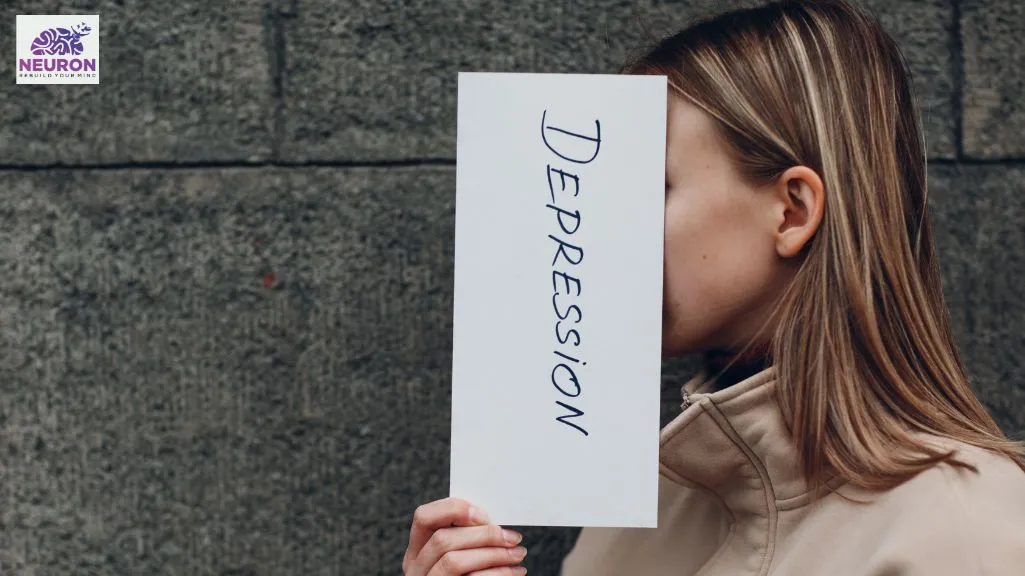Table of Contents
What is Depression? Understanding Depression and Finding Solution
Depression. It’s a word thrown around so often, it can almost lose its meaning. But for those experiencing it, depression is a real and debilitating illness. It’s more than just feeling sad for a few days; it’s a persistent state of low mood that can affect every aspect of your life.
Symptoms of Depression: Recognizing the Darkness
Depression symptoms manifest differently in everyone, but there are some common symptoms to watch out for:
- Persistent sadness or emptiness : This feeling can last for weeks or even months and feels overwhelming.
- Loss of interest in activities you once enjoyed: Things you used to find pleasurable no longer hold any appeal.
- Changes in appetite or sleep: You may experience significant weight loss or gain, or difficulty sleeping or sleeping too much.
- Psychomotor agitation or retardation: You might feel restless and agitated, or experience a slowing down of thoughts and movements.
- Fatigue or loss of energy: Even simple tasks feel overwhelming, and you lack the motivation to do anything.
- Feelings of worthlessness or guilt: You may constantly blame yourself for things or feel like you’re a burden to others.
- Difficulty concentrating or making decisions: Focusing becomes a challenge, and even small choices feel overwhelming.
- Recurrent thoughts of death or suicide: These thoughts can be frightening and persistent.
- If you’re experiencing five or more of these symptoms for two weeks or more, it’s crucial to seek help. Don’t ignore these warning signs.
Who Are More Affected? Understanding Vulnerability
Depression doesn’t discriminate. It can affect anyone, regardless of age, race, gender, or socioeconomic status. However, certain factors can increase your risk, such as:
- Family history: Having a family member with depression makes you more susceptible.
- Medical conditions: Chronic illnesses or hormonal changes can trigger depression.
- Life stressors : Trauma, loss, or major life changes can contribute to depression.
- Substance abuse : Drug and alcohol abuse can worsen depression symptoms.
Remember, you’re not alone. Depression is a common mental health condition, and there are many resources available to help you overcome it.
Treatment of Depression: Finding Your Way Out
The good news is that depression is highly treatable. Different approaches work for different people, and it’s important to find the combination that works best for you. Here are some common treatment options:
Medication: Antidepressants can help regulate brain chemicals that contribute to depression symptoms.
Therapy: Talk therapy, such as Cognitive Behavioral Therapy (CBT), helps you identify negative thought patterns and develop healthier coping mechanisms. At Neuron Hospital Rajkot we Have experienced Psychologist who will help you talk you out of your depression.
Lifestyle changes: Eating a healthy diet, exercising regularly, and getting enough sleep can significantly improve your mood.
Support groups: Connecting with others who understand what you’re going through can be invaluable.
Treatment of Depression Without Medicine: While medication can be very effective, there are also ways to manage depression symptoms without it. Here are some approaches to consider:
Light therapy: Exposure to bright light can be particularly helpful for seasonal affective disorder (SAD).
Exercise: Physical activity is a natural mood booster and releases endorphins that promote well-being.
Mindfulness and meditation: These practices can help manage stress and improve emotional regulation.
Healthy sleep hygiene: Maintaining a regular sleep schedule and practicing relaxation techniques can improve sleep quality, which impacts mood.
It’s important to consult with a mental health professional to determine the best treatment plan for your individual needs.
How to Prevent Depression: Building Your Inner Strength
While there’s no guaranteed way to prevent depression, you can take steps to improve your mental resilience. Here are some tips:
| Develop strong social connections | Learn stress management techniques: | Maintain a healthy lifestyle |
| Having supportive relationships is crucial for emotional well-being. Practice self-care: Prioritize activities that nourish your mind, body, and spirit. | Techniques like deep breathing, meditation, and yoga can help you cope with stress in healthy ways. | Eat a balanced diet, exercise regularly, and get enough sleep. Learn to identify negative thought patterns: Challenge negative self-talk and replace it with positive affirmations. |
When to Get Help: Don’t Suffer in Silence
If you’re experiencing symptoms of depression, don’t hesitate to seek help. Early intervention is key to successful treatment and managing the condition. Here are some signs it’s time to reach out:
Symptoms are interfering with your daily life.
- You’re having suicidal thoughts.
- You’ve tried self-help measures without success.
Dr. Ankit Patel At Neuron hospital for Depression in Rajkot – We have most experienced and compassionate doctor to help you with your depression. Dr. Ankit Patel (M.D Neuropsychiatrist – gold medalist) has already successfully treated more than 500 cases of depression. we provide best treatment options and psychotherapies for Depression.

